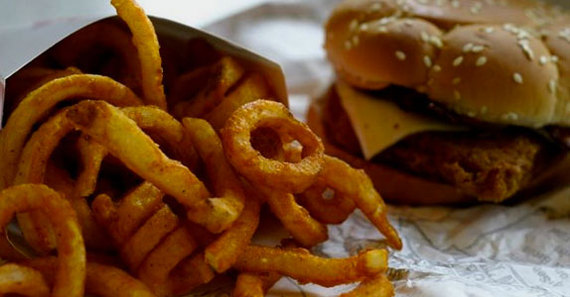
Article Source: makeyourbodywork.com
Imagine attending a party where you really don't know anyone. Eager to strike up conversation, you introduce yourself to a woman and ask here what she does for a living.
"I'm not a lawyer," she responds.
"What just happened?" you ask yourself. Was your question confusing? Or maybe you misheard her answer? Either way, that conversation ended awkwardly.
Now picture this: Your colleague comes back from vacation with a great-looking tan. Obviously he's been traveling someplace warm so you ask, "Hey -- where did you vacation to?"
He answers, "We didn't make it to Florida this year."
Again, what do you make of this?
While those elusive answers to such simple questions seem pretty unlikely, we all tend to do something very similar when asked about our eating habits. Have you ever said any of the following?
"I've gone gluten-free."
"I cut out all dairy."
"I'm trying to reduce my carbs."
"No sugar for me."
Instead of telling people what you do eat, it's often more likely that you tell them about all the foods you are working so hard to avoid.
Recently I was working with a client whose doctor told her that she needed to lose 40 pounds. I asked her about her diet and she informed me that she had become a vegetarian earlier that year.
"Great!" I thought. "If she has already started eating more vegetables then I know we're on the right path."
Unfortunately, to this client being a "vegetarian" had nothing to do with eating vegetables -- it simply meant that she couldn't eat any meat. In fact, her diet was loaded with processed foods, high-calorie drinks, and tons of sugar. Sure, there wasn't any meat in there, but there also weren't any vegetables!
She wasn't a vegetarian -- she was a "non-meat-eater" who had a terrible diet!
Labelling your diet based on the foods you don't eat can at least partially be attributed to eating advice passed down through the media. One clear example came about in the 1980s when there was a media backlash against dietary fat.
The war cry went out, "Eat fat and you will get fat!" and people took this very seriously. All fats were bad, and all low-fat or fat-free alternatives were a God-sent. Grocery stores quickly packed their shelves with reduced-fat foods to satisfy the demand for these "healthier" food choices.
Of course we now know how this story turned out. People stopped eating fat but replaced it with a plethora of highly processed, high-sugar, high-calorie foods that were far worse than the full-fat originals. Instead of losing weight, the obesity epidemic took on exponential growth that we are still seeing today.
People were defining their diets by what they weren't eating, but they didn't pay much attention to the foods that they were.
Hindsight is 20-20 so it's easy to look back now and see that eating fat isn't the reason people gain weight. But that doesn't stop us from looking for the next food to demonize as "the one" that is the source of all our eating problems.
There is something very appealing about the simplicity of food elimination: "If I just stop eating _______ then I will finally be healthy and happy."
If only healthy eating worked so mechanically and simplistically. (It doesn't.)
Last year I attended a seminar that discussed the basis of true healthy eating. The presenter asked us, "Do you realize that the foods you eat literally become your body?"
I think about this question all the time now. The junk food that you avoid doesn't really matter if you're not providing your body with the healthy building blocks it needs. Only the food that you actually eat has any significance.
So next time someone asks you about your diet, think about answering in terms of the foods that you do eat, not the ones you avoid.